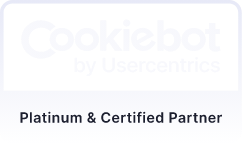SoBold has continued to be an accredited Living Wage Employer and has formally made a commitment to ensure all new and existing staff contracts are renewed at the Living Wage rate as a minimum.
SoBold has been a Living Wage Employer since 2019 and they are committed to ensuring that all staff are treated fairly and remunerated fairly in line with the Living Wage Foundation.
The new Living Wage rates were announced on Thursday 22nd September 2022 and SoBold ensured that all staff pay is in line with this.
SoBold hope to see more agencies within the technology sector follow suit and become accredited.
SoBold Managing Director, Will Newland said:
We are proud of the people that work at SoBold and we truly care about them. Our staff have always been the life blood of our organisation and it is an absolute no brainer for SoBold to be a Living Wage employer.
Would you like these insights straight to your mailbox?
- Configured firewall options, IP access lists, and anti-phishing attack technologies
- Full responsibility for rapidly patching OSes and libraries
- Long-term-supported Linux distributions for maximum security.
- Compliance with ISO 27001/PCI-DSS/TIA-942
- A 100% pass-rate for any data centre audits
- 24/7 data centre staffing with experienced engineers and specialist security teams
- Document review services for your external audits
- Bespoke consultancy available if you have any major certification requirements.
- A fully-managed service provided by a team with decades of experience
- Round-the-clock, hands-on assistance, 365 days per year
- Deep technical understanding and expertise
- Proactive support from dedicated engineering teams and account managers
- High-level consultancy, including advice on new projects and technologies.
Announcement
10 September, 2022
SoBold achieve ISO 9001 Certification in Quality Management
SoBold are delighted to announce that they have been awarded the world’s most recognised Quality Management System Standard, ISO 9001.
SoBold have worked incredibly hard over the past few years to set and follow processes and procedures as a company that ensure they are providing quality work to their clients.
As the number of enterprise clients grows, SoBold’s ISO 9001 certification will be able to give their clients the assurances they need around SoBold’s consistency and quality services in the work they produce.
ISO 9001 is one of the most commonly used management system across the world and SoBold believes this is going to open up considerably more opportunities with winning tenders and contracts to ensure SoBold continues to be one of the leading WordPress Website Design and Development Agencies in the UK.
As SoBold continue to scale as a business, the need for efficiency has never been greater. It is absolutely essential that all internal communication works to the same processes and agenda and the ISO 9001 certification allows this to be possible.
In order to achieve our ISO 9001 certification, SoBold worked closely with QMS International, who provide expert consultancy to businesses looking to achieve their certification. QMS have a team of over 50 consultants and auditors and they ensure the experience they provide is streamlined and uncomplicated.
SoBold Technical Director, Sam Phillips said:
We are delighted to have been issued with our ISO 9001 certification, recognising our commitment to quality. Over the past 12 months we’ve spent a great deal of time improving and documenting our internal processes to help streamline delivery of projects and ensure we continue to deliver on the high standards we set for ourselves. Achieving this certification is a reflection of all this work.
Would you like these insights straight to your mailbox?
Development
9 November, 2023
Regulation of digital markets: Comparing UK and EU approaches
Digital markets have experienced significant growth and dominance by a few companies and their platforms, raising concerns about competition, consumer choice, and data access. To address these issues, both the European Union (EU) and the United Kingdom (UK) have introduced regulatory reforms.
The EU has implemented the Digital Markets Act (DMA) and the Digital Services Act (DSA), while the UK has proposed the Digital Markets, Competition, and Consumer Bill (DMCCB) and the Online Safety Bill.
We’ll look at the regulatory approaches taken by the EU and UK, highlighting similarities and differences in scope, applicability, the importance of consent and how to get started with compliance.
Data privacy regulations in the European Union
The Digital Markets Act applies to companies designated as “gatekeepers” by the European Commission. Gatekeepers are the owners and providers of what the Commission identified as core platform services (CPS), such as search engines, social networking services, video-sharing platforms, and cloud computing services.
Companies designated as gatekeepers must carry out self-assessments to determine that they have met and continue to meet both quantitative and qualitative criteria. The list of gatekeepers may grow or change over time based on these criteria.
The quantitative criteria include a minimum annual turnover of €7.5 billion in the EU and at least 45 million active monthly users on the relevant platform or service in the last three financial years. Qualitative criteria consider the impact, importance, and market position of the CPS provider.
The DMA’s requirements are similar in many respects to those of the EU’s General Data Protection Regulation (GDPR), but are broader in some ways, addressing additional access to and uses of end users’ personal data.
Data privacy regulations in the United Kingdom
The Data Protection Act 2018 (“DPA”) covers the general processing of personal data in the UK and came into force on 25 May 2018, just before the EU GDPR took effect.
Following the end of the Brexit Transition Period, the EU GDPR became part of UK law through the European Union Withdrawal Agreement, and the Data Protection, Privacy and Electronic Communications Regulations 2019 (Exit Regulations).
The EU GDPR gave rise to the UK GDPR, which came into force on January 1, 2021, as the EU GDPR no longer protected UK citizens’ data. It includes the provisions of the EU GDPR with only minimal changes to the core principles, rights and obligations for data protection.
The UK GDPR and the DPA 2018 (amended version) are now the principal data protection regulations in the UK. They require businesses to protect individuals’ data, obtain consent to collect and use it, and protect data subjects’ rights.
The Privacy and Electronic Communications Regulations (PECR) implemented the EU’s ePrivacy Directive (Directive 2002/58/EC) and sets out privacy rights relating to electronic communications. The PECR came into force in 2003 and .
The “British DMA”: Enter the Digital Markets, Competition, and Consumer Bill (DMCCB)
In the U.K., Parliament has yet to pass the British equivalent of the DMA, the Digital Markets, Competition, and Consumer Bill, or the DSA equivalent, the Online Safety Bill.
The DMCCB applies to digital commercial operations in the UK or affecting the UK market, which are deemed to have Strategic Market Status (SMS). The definition of a digital activity is broad and includes any service provided via the internet.
To qualify as an SMS, a firm must meet criteria such as conducting a digital activity linked to the UK, having substantial market power, and holding a position of strategic significance. Turnover thresholds of £25 billion global turnover and/or £1 billion UK turnover are also considered.
Obligations and requirements
European Union: Digital Markets Act
The DMA imposes various behavioral obligations on gatekeepers. These include allowing third-party interoperability, granting access to user-generated data, promoting fair competition, and prohibiting preferential treatment of the gatekeeper’s services.
Gatekeepers must appoint compliance officers and submit annual compliance reports to the Commission.
Additionally, gatekeepers are required to inform the Commission about mergers (any “intended concentration” irrespective of whether they’re notifiable under the EU Merger Regulation or national merger rules. (DMA Art. 14.).
United Kingdom: Digital Markets, Competition and Consumer Bill
Strategic Market Status (SMS) firms in the UK will be subject to strict behavioral obligations under the DMCCB. These obligations revolve around fair trading, open choices, trust, and transparency.
The specific requirements will be tailored by the Digital Markets Unit (DMU) and the Office of Communications (Ofcom), the regulatory bodies overseeing the DMCCB and the Online Safety Bill, respectively.
SMS firms must also report proposed acquisitions meeting certain thresholds to the DMU.
EU vs. UK processes
European Union: (Digital Markets Act)
The EU’s legislative-driven model designates gatekeepers based on size and imposes behavioral expectations through regulation. The European Commission develops and enforces these requirements for compliance from gatekeepers.
United Kingdom: Digital Markets, Competition and Consumer Bill (DMCCB)
The UK’s approach involves more regulatory discretion. The DMU and Ofcom determine if a company has Strategic Market Status and tailor specific remedies accordingly. This approach allows for a more flexible and tailored oversight of digital platforms.
Participatory regulation
In the UK, both the DMU and Ofcom adopt a participatory regulation approach. This means regulators work closely with target companies to develop behavioral expectations and codes that can be enforced. The companies conduct their own Duty of Care analysis, which is reviewed by regulators that provide guidance and work collaboratively to define behavioral codes.
This means that beyond what’s defined by the two regulations, gatekeepers and SMS are required to determine their own privacy requirements to apply to third-party businesses using their services.
The importance of consent management for EU, EEA and UK companies
While both the European Union’s Digital Markets Act (DMA) and the United Kingdom’s Digital Markets, Competition and Consumers Bill (DMCCB) emphasize the significance of obtaining user consent for data processing activities, there may be variations in specific requirements and implementation.
To address these differences and get ready for data privacy compliance, follow these steps:
1. Understand the regulations
Familiarize yourself with the specific consent requirements outlined in both the DMA and DMCCB. Identify any variations in terms of lawful bases for processing, explicit consent, and additional obligations.
2. Assess your website or online platform’s data processing
Assess your organization’s data processing practices and identify any areas of noncompliance. Scan your website and check its degree of GDPR compliance.
3. Implement a leading European consent solution
Choose a consent management platform that enables GDPR and ePrivacy-compliant user consent collection and signaling for DMA compliance. Ensure that the CMP provides features such as granular consent options, secure recordkeeping, and user-friendly interfaces.
The specifics of CMP implementation do depend on what platforms you’re using, like your CMS, as well as other tools, including Google Tag Manager and other services. Cookiebot CMP is flexible, has direct integrations with leading website platforms, and can be installed with just a few lines of JavaScript. There’s also a cookie WordPress plugin.
4. Customize consent banners
Tailor the consent banners displayed on your website or online platform to meet the specific requirements of each regulation. Provide clear information about data processing activities, purpose specification, and the ability to manage preferences.
5. Update your privacy policy
Review and update your privacy policy to align with the requirements of the DMA and/or DMCCB. Include details about the types of data collected, the purposes of processing, parties with access to the data, and how user consent is obtained and managed.
6. Train your team
Educate your staff about the nuances of both regulations and the proper implementation of consent management. Ensure they understand their roles and responsibilities in obtaining and managing user consent.
Final thoughts
The UK and EU regulatory initiatives are creating de facto global digital risk management standards, by taking significant steps to regulate digital markets and addressing concerns related to market dominance, competition, consumer choice, and data access.
While the EU has implemented the DMA and DSA, the UK is in the process of enacting the DMCCB and the Online Safety Bill. The approaches differ in some aspects, but there’s a shared goal of promoting fair competition and protecting consumer interests.
Would you like these insights straight to your mailbox?
Industry News
21 June, 2022
Pixel Pioneers Bristol 2022
If you’ve never been to a conference of any type before, you possibly think you already know the important areas of your profession and can find out any developments from your colleagues or the internet. At least that’s what I thought prior to attending Pixel Pioneers 2022.
Which option sounds more appealing to you? Pick up extra skills on occasion, or go to a conference and absorb a mega-dose of industry knowledge, make connections and enjoy exploring fresh surroundings? Luckily at SoBold we have the opportunity to do both.

The conference covered both ends of the telescope – from broad topics such as energy consumption, to a fifty minute talk about the brief three milliseconds your screen goes blank in between webpage loads. How the visually impaired experience the internet, to technical developments in styling / fonts.
My personal hero was Chris How – his mantra of valuing your customer’s time and giving them small moments of delight strongly resonated with me. In accordance, I want to guide you through the content of the conference, with links to the core material that will best replicate what the SoBold team saw, whilst valuing your precious time.
GAVIN STRANGE : Less Thinkering, More Tinkering
A must watch to boost your levels of creativity. Gavin shares his personal and professional projects with Aardman Studios. Lots of useful insights into reaching the pinnacle of creativity. Highly engaging delivery, visuals and plenty of ‘further reading’ material. Definitely worth watching in entirety. Gavin Strange website – will give you a sense of his creative flair and influences. https://www.jam-factory.com/
“It’s better to beg for forgiveness, than ask for permission.”
Gavin Strange

BIANCA BERNING : Variable Fonts – WTF?
From a technical and design standpoint, learning about variable fonts is incredibly useful. Towards the end Bianca veers into the potential application of variable fonts – imagine a world where your computer mutates its content to fit the viewer’s specific needs. If you’re looking for new avenues for unique artistic features for your website – this talk is for you. Everyone should have a play with variable fonts – try it here https://v-fonts.com/

CHRIS HOW : You Got to Fight for the Right to Delight
Chris’s choice of examples and commentary is intentionally entertaining and eclectic. His approach to design changes your criteria for success and also would decisively influence your next project. Essential viewing. Whether you’re a seasoned designer or developer short of a design, this talk will give you a guiding direction. Information on the Kano product roadmap here. https://www.productplan.com/glossary/kano-model/

LÉONIE WATSON : Accessibility: The Land That Time to Interactive Forgot
Visually impaired people experience the internet through screen readers – the internet described in words. Léonie’s valuable insight will definitely re-balance your priorities and appreciation for how websites should function. Some of the technical history she overviews was a bit lost on the audience but the switch in mindset is valuable. Important to dip into, especially for gleaming a deeper understanding of how a web document is compiled and loaded. It might sound ‘techy’ but it’s like understanding how our lungs work – illuminating. If you haven’t viewed any of your own websites using a screen reader – you definitely should. For a great sense of how the net is best experienced for visually impaired users – just check out her website – tink.uk
LUKE MURPHY : Lightning Talk: Design Tokens – Searching for a Source of Truth
Design Tokens act as a very useful tool for blending the boundaries of where design and development meet, in fact, they act as a technical element that affect design and development in equal measures. If you have no idea what a design token is – this talk could unlock a tonne of structure for your product. Here’s an overview article on design tokens

HANNAH SMITH : How to Make Digital Services More Sustainable
Hannah Smith’s talk invited us to critique our energy consumption and make changes to our habits as both consumers and producers of digital content. She makes the case that space travel is a waste of resources, and that using less lays the path to fulfilment. See if her arguments resonate with you. Hannah’s book recommendation – Doughnut Economics by Kate Raworth
JHEY TOMPKINS : Supercharge Your Skills with Creative Coding
A mad professor of CSS and JavaScript – Jhey has a mixture of technical tricks and interesting libraries for speech recognition. Deadpan yet full of colourful examples, Jhey clumsily demonstrates his collection of magical creations and challenges you, the developer, to break out of your ‘siloed’ mentality for visual presentation. Check out his catalogue of wondrous CSS/JS creations here

STUART LANGRIDGE : You Really Don’t Need All That JavaScript, I Promise
Painting with the broad brushes down to the nat-hair infinitesimally small details, Stuart reminds us of the importance of returning to the basics in order to best utilise the web. Unfortunately some of the libraries he suggests do not have extensive compatibility and thus aren’t for mainstream production… yet. His insight does provide a deeper understanding of the mechanics of the tools we use, although the message is quite drawn out. Example of the shared transitions js library https://codepen.io/drenther/pen/NjzeOO
RACHEL ANDREW : What’s New in CSS?
Rachel Andrew – new css features either in or emerging from or newly arrived from CSS-land. Truly at the coalface of emerging CSS features. For a frontend developer it was akin to being shown new letters in the alphabet that were being proposed. A summary of similar information can be found here – https://www.smashingmagazine.com/2022/03/new-css-features-2022/

Bristol itself is well worth a visit – a centre for nightlife, hedonism and youthful idealism. Simply walking around the harbour area in the daytime will refresh your appreciation for one-of-a-kind shops and overflowing street art. Make sure you have plenty of free space in your phone for all the photos. The SoBold team had a very enriching experience and bonded even tighter as a team. I hope to see you at the next one!
Links to the conference videos will be available via the Pixel Pioneers website.
Would you like these insights straight to your mailbox?
Digital Business
29 March, 2023
Just How Scalable is WordPress?
When looking at content management systems (CMS), scalability refers to the ability to expand and grow your site with more content, capabilities, features, and functionality.
Your CMS is a long-term investment, and its scalability will have a strong influence on whether or not that investment is successful.
“When sustainable business growth is a top strategic objective, you need full confidence that your web presence can seamlessly scale and evolve to support that growth.”
This requires a platform that allows you to quickly and easily create new features and functionality. Ideally, you should be able to do this without having to invest significant time and resources into additional costly development work.
WordPress is One of the Most Scalable Platforms Around
Evidence of WordPress’s great scalability can be found in the fact that almost 45% of the world’s websites are built on the platform. That includes global enterprises such as investment firm Blackstone, research and advisory leader Forrester, the NHS England, and leading pharmaceutical company Hutch Med.
This is because WordPress websites can seamlessly scale as your needs change and your business grows. You can easily add a high volume of new content to your site at speed without compromising on quality.
WordPress is also renowned for how easily you, or your development partner, can build bespoke features and functionality, so your site can keep evolving with new capabilities to support more advanced requirements.
“No matter the size or complexity of your site, WordPress can provide fast, intuitive development capabilities with ongoing growth acting as a natural outcome.”
Using WordPress at Scale
Developing, managing, and maintaining a high-performance website at scale is a complex challenge. For that reason, it’s important to work with an experienced web design and development agency who can enable continual growth and support you through it.
Part of your agency’s services will include configuring your platform, and building your site in the back-end, in a way that encourages long-term scalability. We’ll explain our own approach to this in more detail in the next section. But first, let’s look at some of the fundamental ways to use WordPress at scale:
Bespoke Features and Functionality
If you want to build out your website with new capabilities, WordPress stands above all its competitors thanks to its ability to develop bespoke features that are unique to your site.
WordPress is built on PHP, which is the most popular development language around, as it’s currently used by over three quarters (77.5%) of all websites with a known server-side programming language. With PHP, WordPress has a significant advantage over other CMSs, because it allows you to create virtually anything and integrate it with the platform.
WordPress Plugins
WordPress also comes with a vast range of plugins, which can help with adding to, and enhancing, the existing functionality of your site. Plugins are an essential aspect of WordPress development, but it’s crucial that you only choose the most reputable, tested, and proven plugins.
Your agency partner should be experienced in this plugin selection and use their past experience to recommend the best ones to use for your specific requirements. Your agency partner should also be able to advise you on how plugins will scale with increases in website size or traffic volume to help preserve your site’s performance.
Using plugins that are not regularly updated, or that come from unknown development owners, could harm your site by making it heavier, slowing down your page loading times, and possibly even creating security vulnerabilities.
Using a particularly large number of plugins is another situation that could result in slower loading speeds or other performance issues. Be mindful that use of plugins can reduce the bespoke development time needed to build your site, and the use of too many plugins could cause performance issues. If you find yourself in this situation, it could be an indication that your development partner might actually be taking shortcuts.
The Importance of a Trusted Partner
Whether you’re using plugins or building new bespoke features, your agency will be able to take care of all of these crucial aspects of your development for you. Their support and guidance will ensure you can expand your site freely without running into any technical issues.
Once you have everything you need in place, your agency will then be able to accelerate the speed at which you can scale moving forward. A great agency partner will also provide you with ongoing education and support, allowing you and your team to build your site out easily and efficiently by yourself too, whenever you want or need to.
Taking a More Scalable Approach – Building with Blocks
While many agencies still use a more traditional method of developing sites with WordPress, taking a block-based approach provides even greater opportunities for dynamic scalability.
As an alternative to the time-consuming practice of inputting text and images into a rich text editor in your CMS, the block-based approach allows you to create each page on your site more easily with a set of pre-built components.
Components are blocks of code with pre-defined style and input types. You can use and re-use these components across multiple pages of your site to scale it at a much faster pace. Any time you want to create a high volume of new content, you simply pick your already-built components and place them in the correct positions.
This is an approach that enables virtually limitless growth of your website at speed with a high level of quality and accuracy. Building components that can be reused across your site will also deliver added benefits like increased efficiency and reduced costs. This in turn provides you with more time to focus on developing better services and experiences for your site visitors.
The block-based approach to building websites is another way to make your WordPress platform leaner for better performance as well, because it removes the need for a bloated library of unnecessary plugins and features.
An Enterprise-Grade CMS
Scalability should be a key aspect of your criteria when selecting a CMS to build a website. Rapid growth and flexibility are crucial for your platform of choice.
Despite some still mistakenly thinking it might not be up to the task, you can use WordPress to build large, robust, high-performance sites at speed, and easily adapt them as your requirements change.
This arguably makes WordPress one of – if not the – best CMS options available today. When you look at some of the world’s leading businesses currently using the platform to great success, that argument becomes much easier to appreciate.
Like with any CMS, though, the key to successful scalability is having the support of an experienced, trusted agency partner behind you, ensuring you’re leveraging the platform to its full potential.
Would you like these insights straight to your mailbox?
Hosting
20 June, 2023
Enterprise-Grade Web Hosting Explained
The type of hosting environment you select will have a strong influence on the success of your website. It’s important for you to find a secure, scalable web hosting service that you have 100% trust in to deliver high-performance at all times.
To simplify the options available to you, this article will break down the various types of web hosting services, and explore the non-negotiables we believe you should be considering in your criteria when making your decision.
The Fundamentals of Enterprise-Grade Hosting
Some of the most important things to look for with your hosting environment include:
Security – Cyber security is obviously an essential priority, and this should be top of your list of criteria in the current climate.
Performance – Your hosting environment should be set up in a way that makes your site capable of handling large surges of traffic.
Scalability – As your business grows, it’s likely that your site’s audience will grow. You need a hosting provider with the capacity to scale your services seamlessly to meet your needs, both now and in future.
Resilience – It’s important to ensure your hosting infrastructure is robust, and that it can gauruntee you certain performance levels and up-time.
Support – If anything does go wrong, you need to be assured that you have a quick, efficient support service in place to get your site back up and running as soon as possible.
Sustainability – With sustainability a growing priority on the corporate agenda, the carbon footprint of your data centre may be another important factor in your decision.
Option 1 – Shared Hosting Services
Shared hosting services can provide you with a basic secure server for your website. However, as the name suggests, these servers will be shared with a large number of other businesses. You won’t have any dedicated server of your own with shared hosting.
This approach does have some advantages, particularly in the area of cost. These shared hosting environments can cost as little as £1,000 per year. However, the down-sides to this often outweigh that cost benefit.
In many cases, the low cost of shared hosting services can often be reflected in the performance levels. This is because, with such a high volume of websites hosted on the servers, your performance has no protection if other sites are experiencing high volumes of traffic.
It’s also likely that you’ll only have access to limited support services when any issues arise. Many of the shared hosting options will have a ticketing system for support, where you’ll be at the mercy of the number of requests ahead of you in the queue. This could result in your website being ‘down’ during times where it’s business-critical.
Option 2 – Private Servers with Shared Hosting Providers
Most shared hosting providers will offer the option of having your own private server for an extra cost. This is often referred to as a VPS, which stands for virtual private server.
Rather than sharing a server with thousands of other businesses, you’ll only be sharing with a few others. While this is significantly better than the regular shared hosting options, you can still end up facing similar problems with performance and scalability.
This is another cost-effective approach, though, with some improvements over standard shared hosting. If you rely on an agency to set this up for you, they’ll likely put their smaller clients on a shared VPS and give their larger clients their own dedicated servers to minimise any potential problems.
Option 3 – Enterprise-Grade Private Web Hosting
Often the most reliable and trusted approach to take is to have your own dedicated server, which comes with a wide range of additional benefits.
With this option, your website is placed on its own private server in the cloud, managed by a dedicated team of specialists who offer personalised, hands-on support and ongoing optimisation.
Security
Enterprise-grade security should be a core part of the hosting service you choose, regardless of whether it’s private or shared. However, you’ll be guaranteed far greater security, with drastically reduced risk, when you work with a private hosting service.
For instance, a hosting provider should offer robust protection for your site, including:
Of course, compliance and certifications are another crucial aspect of cyber security these days. While some shared hosting providers may have the basic levels of compliance in place, most private hosting services will boast:
Performance
When taking this approach, you’ll receive your own bespoke service and will be provided with a hosting environment tailored to your specific requirements.
This will optimise everything included in your hosting package, from your preferred caching, loading speeds, performance requirements, up-time, and more.
You’ll also be able to set up a content delivery network (CDN) to make your website faster and more readily available to all visitors around the world.
Scalability
Private hosting gives you the capacity and flexibility to scale seamlessly anytime your website’s traffic increases, or if you have peak times for traffic.
This is an intelligent way to future-proof your investment, with the confidence that your website’s performance will be consistently excellent as the size of your audience increases and your site expands. This also applies to situations in which you need to scale unexpectedly due to short-term increases in demand, ensuring business continuity is always maintained on your site.
Resilience
Private hosting providers have guarantees for their resilience, and for your site’s up-time, covering all possible bases. This even counts for unusual scenarios like floods or fires.
It’s wise to look for a provider who offers back-up and disaster recovery services for the maximum resilience.
Back-Ups: Managed back-up services provide you with a tailored regiment, alongside rigorous testing, for guaranteed restorability.
Multi-level back-ups are taken for you, both locally and remotely, to minimise risk. You’ll also be able to choose from a range of replication technology options for your load-balancing and various fail-over scenarios.
Disaster Recovery: Private hosting providers will also use disaster recovery measures, such as geographically-distributed platforms and back-up data centres, providing you with full assurance that your performance and up-time are always maintained.
Your primary hosting platform will be replicated to a disaster-recovery platform, which means that if the primary data centre is ever out of action for a prolonged period of time you can fail-over to the back-up systems.
While the more basic hosting services can take days to recover in similar situations, which could result in losses of business and even reputational damage, disaster recovery can often be done in a matter of minutes with a private hosting environment.
Support and Optimisation
Trust and confidence in your provider’s ability to deliver on your requirements are a vital part of your hosting service.
It’s highly beneficial to take an approach that gives you – or your agency partner – a close working relationship with your hosting provider. Availability and accountability are much greater with a private hosting service than with a shared approach.
A close working relationship provides other advantages as well. For instance, anytime you want to make upgrades to your hosting environment, they can analyse your traffic and identify the best time and date to do that with minimal disruption.
This is all part of collaborating with your agency and hosting provider, so they understand your unique business and tailor your hosting services. This is all done based on the conventions of your target audience and your specific requirements to deliver the best possible service.
In terms of support, private hosting providers will have powerful automation tools to proactively, continuously monitor your environment. That allows them to resolve the majority of issues before they’re able to have an impact on your site.
This can also involve 24/7 custom alerting systems, as well as a fully customisable monitoring portal, and multi-channel systems to alert engineers rapidly in the event of any problems.
In terms of your overall service with an enterprise-grade private hosting provider, you should also expect to gain:
Sustainability
If your business has sustainability as a priority or core cultural value, then this is another reason to opt for a private hosting service. While it’s not impossible to find shared hosting services with carbon-neutral data centres, it’s much less common.
Sustainability is also a key focus for us here at SoBold as an agency. As a result, we’ve worked hard to ensure we have an environmentally-conscious, carbon-neutral service offering.
The Verdict?
Having a fully dedicated, bespoke private server is usually the preferred choice of web hosting services. This is due to the unmatched levels of security, scalability, and performance that come with private hosting providers.
Of course, it’s important to note that this does also come with a higher cost than other options. However, the benefits and trust gained through their strengths in these key areas ensure strong ROI.
Not only do their flexibility and optimisation provide you with a high-performance website set up for success, but enterprise-grade security and resilience will also minimise your risk and save you significant costs in the long-term.


